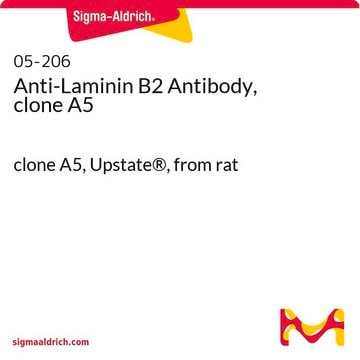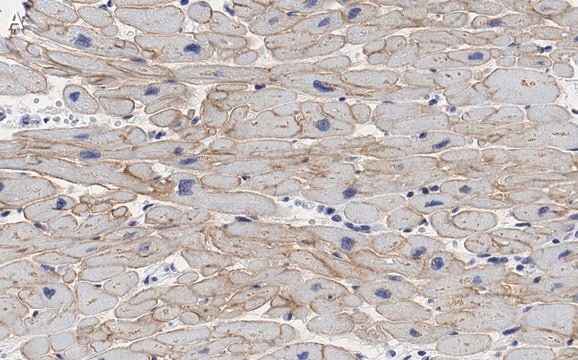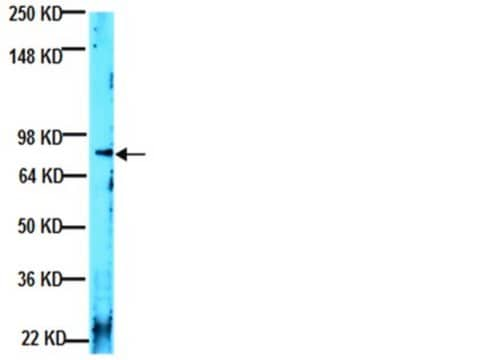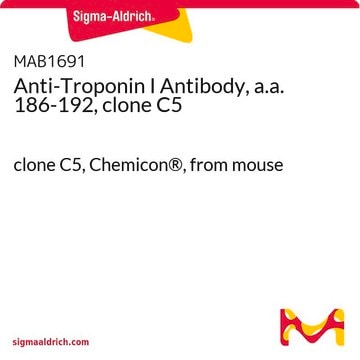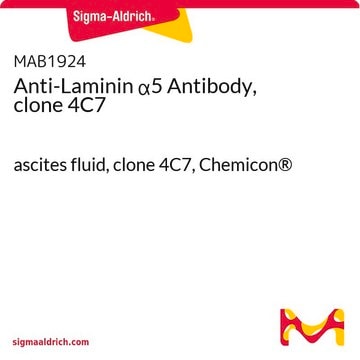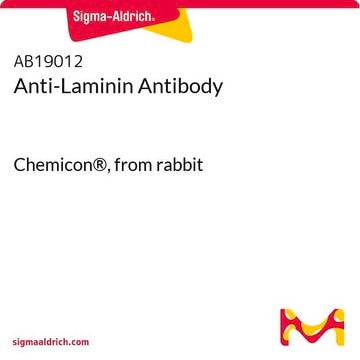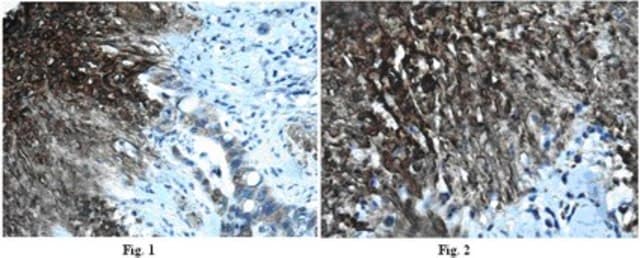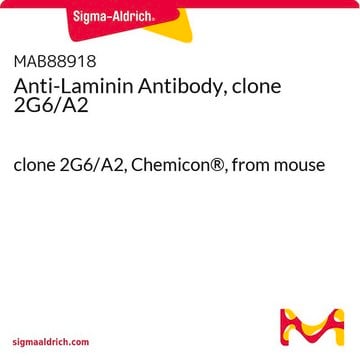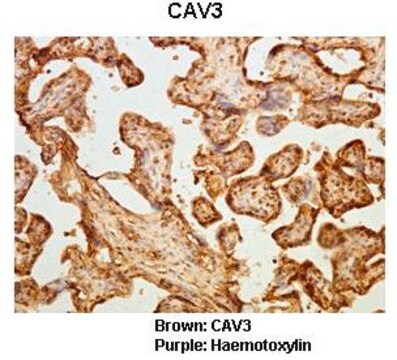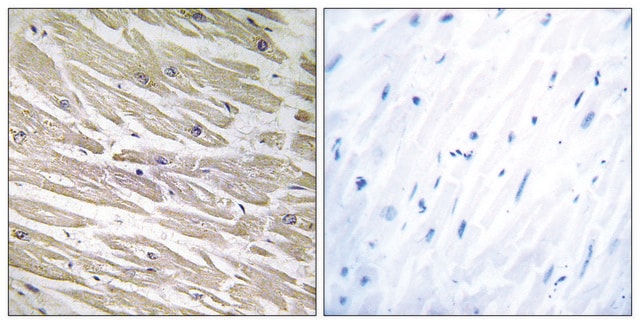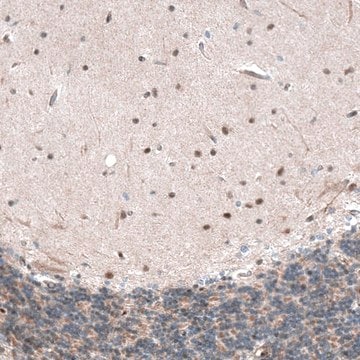L0663
Anti-Laminin-2 (α-2 Chain) antibody, Rat monoclonal
clone 4H8-2, purified from hybridoma cell culture
Synonym(s):
Anti-Merosin
About This Item
Recommended Products
biological source
rat
Quality Level
conjugate
unconjugated
antibody form
purified immunoglobulin
antibody product type
primary antibodies
clone
4H8-2, monoclonal
form
buffered aqueous solution
mol wt
antigen ~400 kDa (denatured)
species reactivity
human, mouse
packaging
antibody small pack of 25 μL
concentration
~2 mg/mL
technique(s)
immunocytochemistry: suitable
immunohistochemistry (frozen sections): suitable
immunoprecipitation (IP): suitable
indirect ELISA: suitable
indirect immunofluorescence: 4-8 μg/mL using acetone-fixed frozen sections of human tongue
microarray: suitable
western blot: suitable
isotype
IgG1
UniProt accession no.
shipped in
dry ice
storage temp.
−20°C
target post-translational modification
unmodified
Gene Information
human ... LAMA2(3908)
mouse ... Lama2(16773)
General description
Laminin, the most abundant structural and biologically active component in basement membrane, is a complex extracellular glycoprotein of 700-900 kDa that plays an important role in many aspects of the cell biology. It is composed of one α chain (approx. 400 kDa, previously called A chain) one β chain (215 kDa, B1) and one γ chain (205 kDa, B2), held together by disulfide bonds.
Anti-Laminin-2 (α-2 Chain) antibody, Rat monoclonal (rat IgG1 isotype) is derived from the 4H8-2 hybridoma produced by the fusion of rat myeloma cells and splenocytes from a Lewis rat immunized with mouse heart laminin-2.1 The antibody is purified from the culture supernatant of hybridoma cells grown in a bioreactor. Anti-Laminin-2 (α-2 Chain) antibody, Rat monoclonal reacts specifically with mouse1 and human2, laminin-2. The epitope recognized by the antibody resides in the N-terminal portion of the α2 chain of laminin.
Specificity
Immunogen
Application
Biochem/physiol Actions
Physical form
Preparation Note
Storage and Stability
Disclaimer
Not finding the right product?
Try our Product Selector Tool.
recommended
Storage Class Code
12 - Non Combustible Liquids
WGK
nwg
Flash Point(F)
Not applicable
Flash Point(C)
Not applicable
Certificates of Analysis (COA)
Search for Certificates of Analysis (COA) by entering the products Lot/Batch Number. Lot and Batch Numbers can be found on a product’s label following the words ‘Lot’ or ‘Batch’.
Already Own This Product?
Find documentation for the products that you have recently purchased in the Document Library.
Customers Also Viewed
Our team of scientists has experience in all areas of research including Life Science, Material Science, Chemical Synthesis, Chromatography, Analytical and many others.
Contact Technical Service



